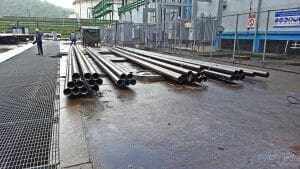A green degree provides opportunities for skilled professionals to start a sustainable and green career. With a green degree, you can make permanent solutions to real-world problems that will impact future generations.
Green degrees can lead you to various career paths like- environmental engineer, sustainability specialist, sustainability manager, etc. People like to pay well for green products as well as services. So, being sustainable and green, you can also have a handsome income. Still not clear? Let’s know what a green degree is and what career path this can lead you to.
Table of Contents
What is a Green Degree?
A green degree meets the market demand for individuals with environmental sciences, engineering, and business expertise. Students at all levels of education can gain specialized knowledge in engineering, construction, environmental law, and renewable energy while focusing on significant areas of environmental health sciences such as sustainability, conservation, climate change, renewable energy, and related business practices.

Benefits of Pursuing a Green Degree
A socially responsible job is a beautiful choice for those who wish to participate in the green movement. However, social responsibility (“sustainable careers”) is still in its infancy, and prospective students may ask why they should seek a career. Here are five advantages of earning a green degree.
Career Diversity
Green careers occur in several fields, such as sustainable business operations, biofuels, urban and land use planning, green architecture and building design, energy system development, intelligent transportation systems, natural resource conservation, and green technology manufacturing.
Skills and Knowledge that Appeal to Employers
Students in these programs gain a solid understanding of sustainability practices and environmental health concerns and a particular skill set for the industrial sector (e.g., engineering, agriculture, geology, soil science).
Green degree graduates have technical research abilities that may be employed in various economic contexts because they work conceptually. In addition, they comprehend the link between business and its environmental effect, are knowledgeable about ecosystems and environmental legislation, and know how to analyze and address sustainability issues.
Work on Modern Problems
Students enrolled in green degree programs can direct their efforts toward pressing environmental issues such as pollution, climate change, biodiversity loss, deforestation, and ocean acidification.

They might work in green technology, developing innovative ways to use solar power, biofuels, and other sustainable energy sources. They may also seek to improve transportation networks’ effectiveness, efficiency, and environmental friendliness.
In addition, they might focus on developing green, resource-efficient structures and facilities and on ecological restoration, directing programs to reverse industrial pollution in natural environments.
Multiple Paths to a Career
There is no single educational path for green jobs. That implies that potential professionals and students can enter the workforce via a formal green degree program, on-the-job training, trade school, internships, or programs sponsored by community or nonprofit groups.
Career Potential
The green economy’s key businesses, immaculate energy, environmental conservation, and green building, continue to expand rapidly. Green degree programs educate students for job prospects in an ever-changing field, where new career pathways, such as sustainability director, are constantly being established.

Graduates of green degree programs may transition into well-paying professions as demand rises in these developing sectors. Bloomberg, for example, offers some of the highest-paying green-focused jobs, including sustainability director ($106k), LEED-certified construction manager ($64k-$119k), environmental engineering ($66k), and solar power engineer ($106k).
Plan Your Green Path
Since every job may be made “green,” students find the variety of career possibilities intriguing. As a result, prospective green degree students should spend time researching their alternatives and determining how their degree will help them make a difference. The following lists some of the most popular sustainability programs and job options.

AGRICULTURE
Sustainable agriculture offers students the concepts and methods to perform and promote ecologically sustainable and economic farming. Students study crop rotation, irrigation strategies, soil analysis, and fertilizer selection.
They also study how to sell organic goods, the effects of agricultural policy, and what it takes to ensure the world has enough food in a very robust green degree program.
- Wilderness Park Manager
- Animal Nutritionist
- Agricultural Scientist
CHEMICAL ENGINEERING

Chemical engineering is a multidisciplinary branch of study that combines chemistry, mathematics, and physics. It also includes a wide range of disciplines and research topics, including environmental engineering, energy, bioengineering and biotechnology, and innovative materials.
Students grasp the field’s fundamental ideas and concepts and may take coursework in applied statistics, chemical engineering processes, materials chemistry, polymer science, and thermodynamics.
Chemical engineering addresses pollution and sustainable concerns by inventing more energy-efficient production processes and methods to decrease industrial waste.
- Chemical Engineer
- Environmental Engineer
ECOLOGY AND CONSERVATION BIOLOGY
Students in these programs gain a broad grasp of the field’s interdisciplinary aspects, such as current conservation methods for endangered species preservation and ecological system function.
The curriculum generally includes natural resources, biological variety, physics, earth science, ecology, soil resources, and evolution. Professionals in the area use scientific knowledge to address many environmental challenges, including habitat destruction, global climate change, clean water, global warming, and ecological restoration.
- Conservation Biologist
- Botanist
- Landscape Ecologist
ENVIRONMENTAL SCIENCE
Like other green academic disciplines, environmental science is an interdisciplinary degree route. However, ecological science programs are distinct from environmental health education, which includes studies from the liberal arts, natural sciences, and geosciences.
Students gain a fundamental grasp of the life and earth sciences, ecology, geography, and, in particular, programs and economics. They may also specialize in biological, geological, or geographical science.
Environmental science is a broadly applicable green academic discipline with potential in climate change, global warming, environmental education, sustainable resource management, and environmental management research.
- Environmental Scientists
- Ecologist
- Water Quality Scientist
GEOLOGICAL SCIENCES
Geological sciences include chemistry, biology, physics, and mathematics, combining the many disciplines into a concentrated investigation of the planet.

Geological science is a broad academic field that includes climate dynamics, geophysics, energy geoscience, marine geoscience, and seismology studies.
Students learn basic geological science topics such as plate tectonics, oceanography, mineral resources, and petrology. As a study of environmental resources, geology naturally interacts with green concerns in energy management, land use, and wilderness habitat preservation.
- Geologist
- Geological Technician
MECHANICAL ENGINEERING
Mechanical engineering is a vast technical subject that employs physics concepts in the design, production, and development of mechanical systems. These curricula include mechanical components and processes, engineering basics, thermal and fluid systems, and materials and manufacturing.
There may be chances for specialized research in industrial engineering, dynamic systems, and biomechanical engineering. Mechanical engineering offers many real-world applications in the green sector, such as researching and producing alternative energy sources (e.g., geothermal, solar, hydroelectric) or solving water conservation issues.
- Mechanical Engineer
- Process Engineer
PETROLEUM ENGINEERING
Petroleum engineering is the study of the ratio between energy requirements and environmental effects. Petroleum engineering is a comprehensive academic curriculum that involves engineering foundations and the study of geosystems, physics, geomechanics, thermodynamics, and environmental chemistry.

Students also study petroleum-related topics, including good logs, sedimentary geology, solid mechanics, and drilling. As a greenfield of study, Petroleum engineering is concerned with increasing the extraction of oil and natural gas while reducing the environmental impact of the extraction methods.
- Petroleum Engineer
- Petroleum Engineering Technician
- Reservoir Engineer
Sprouting Career Opportunity
There are no established employment routes for green jobs, and no definition of a “green” job exists. But, as previously said, sustainability is quickly embedded in organizational culture and professions across virtually every industry.
On the other hand, green jobs might be defined as ones that are ecologically or socially oriented and are intended to create good outcomes. The Bureau of Labor Statistics has lately tried to identify green occupations, categorizing them into five main service categories:
- Bio-resources Conservation
- Energy efficiency
- Energy from renewable sources
- Reducing greenhouse gas emissions, reducing and removing pollutants, recycling and reusing
- Environmental policy, education and training, and public awareness
Although definitions vary, green professionals focus on economic, ecological, and social resource management. Climate change, renewable energy, pollution control, and water quality are just a few examples of environmental and resource concerns that have been given to whole businesses.
Because, as Goy points out, we’re attempting to figure out how to “conduct business in a hotter, scarcer, more transparent environment,” these sectors and associated job pathways continue to develop. The following is a list of sustainable occupations with a particular potential and are expected to grow over the next decade.
Looking at the Future: Sustainability and Green Jobs
According to Goy, young professionals should be inventive and entrepreneurial. A typical engineering degree does not have to lead to a conventional engineering profession. Students with a feeling of entrepreneurship can convert their degrees to green degrees and pursue a special interest in sustainability.
The following list contains ten examples of green occupations in various professional fields, including urban planning, range management, energy generation, and engineering.
Urban Planner
Projected Job Growth: 11%
Average Salary: $75,950
Education Required: Master’s degree

Urban planners are futurists, which means they prepare for how cities will be used in the future. They perform studies and research to identify where people can reside and where businesses may locate their headquarters.
More significantly, they collaborate to guarantee that urban projects have access to clean water, adequate waste management systems, and the community’s energy demands are met.
Fish and Game Warden
Projected Job Growth: 2%
Average Salary: $57,810
Education Required: Bachelor’s degree
Game wardens are responsible for enforcing wildlife regulations and guaranteeing the protection and management of animals and natural ecosystems.
They may work as law enforcement officers in several environments, such as national parks, beaches, deserts, marshes, and woods. Depending on their area and assignment, they may be responsible for preventing poaching, verifying fishing permits, or enforcing hunting rules.
Soil Scientist
Projected Job Growth: 15%
Average Salary: $76,870
Education Required: Bachelor’s degree
Soil science, at its core, concerns soil as a natural resource. Soil scientists are tasked with studying its characteristics (physical, biological, and chemical) and how it should be utilized and managed.
Soil scientists gather and assess soil samples using their investigation and analytical knowledge. They may be responsible for various activities, such as generating studies on soil properties, developing a soil management program, publishing scientific publications, and counseling land management experts.
Civil Engineering Technician
Projected Job Growth: 3%
Average Salary: $54,080
Education Required: Associate’s degree
Civil engineering specialists play an essential role in designing, building, maintaining, and repairing infrastructure projects, including bridges, roads, and land development.

Civil engineering technicians are trained in civil engineering principles and operate under the supervision of certified civil engineers.
Individuals in this job often do various activities, such as performing site project inspections, evaluating projection plans, producing project estimated costs, and preparing project reports.
Hydrologist
Projected Job Growth: 5%
Average Salary: $81,270
Education Required: Bachelor’s degree
Hydrology is a discipline that studies water, from its environmental impact to its distribution and characteristics. Hydrologists use their training to understand better and address water-related problems such as water availability, quantity, and quality.
They often research either surface water (such as rivers, lakes, and reservoirs) or groundwater (water from beneath the earth). They investigate the water cycle, conduct research to identify ways to minimize water use, evaluate water quality, and test water samples for contamination, among other things.
Landscape Architect
Projected Job Growth: 14.3%
Average Salary: $73,160
Education Required: Bachelor’s degree
Landscape architects plan and design land for various purposes, such as parks, open spaces, and recreational amenities. Their job entails more than just deciding where to plant a tree.
Landscape architects strive to achieve a harmonious balance between natural and artificial settings. This interdisciplinary profession relies on science, art, and ecology.
They must regard the environment, and their jobs may encompass everything from building green roofs to designing landscapes that decrease pollution and safeguard water supplies.
Forester
Projected Job Growth: 5%
Average Salary: $63,980
Education Required: Bachelor’s degree

Foresters are management professionals who understand the science of the forest. Engaged in conservation, ecological preservation and restoration, foresters are traditionally responsible for the day-to-day activities of protected forestlands.
Forestry is a broad career field in which workers may enforce forestry laws, find ways to reduce pollution, oversee harvesting practices, and monitor the ecological impact of logging.
This position’s overall goal is sustainability-maintaining protected forest areas that visitors (and animals alike) can enjoy.
Geoscientist
Projected Job Growth: 5%
Average Salary: $93,580
Education Required: Bachelor’s degree
Geoscientists are environmental stewards responsible for the environment’s resources and processes. They study the Earth and its operations to tackle some of the world’s most urgent environmental issues.
Geoscientists work in various fields, including engineering, economic, atmospheric science, geochemistry, meteorology, marine geology, oceanography, and paleontology.
They might work as explorers, searching for new mineral deposits. They might act as consultants, assisting engineers in devising novel approaches to environmental problems. Finally, they may work as researchers, doing lab studies to improve agricultural output.
Wildlife Biologist
Projected Job Growth: 4%
Average Salary: $57,710
Education Required: Bachelor’s degree
A wildlife biologist’s primary goal is to conserve wildlife. They work in various conservation areas, including habitat preservation, habitat enhancement, and protecting endangered species.
They assist in guaranteeing that areas are conserved for species to breed, restrict hunting activities, and may alleviate situations where species may be “pests” and negatively influence agricultural productivity. They must understand the intricate ecological and social relationships between animals, the land, and human behavior.
Wind Turbine Technician
Projected Job Growth: 61%
Average Salary: $56,230
Education Required: High school diploma
Wind power, an emerging and growing industry, necessitates the services of wind turbine technicians. These people have been specially trained to understand how wind turbines work.
They inspect wind turbines to identify potential or existing problems and devise a repair plan. The job also includes testing electrical and hydraulic systems, collecting turbine performance data, servicing various control systems, and replacing turbine components.
Top Paying Green Careers
Environmental protection and sustainability, formerly solely the province of environmentalists, have swiftly evolved as a concern that cuts across industry interests. Interest in renewable energy and worries about environmental effects are growing, the premium on employment with a “green” orientation.

This need has created a new ecosystem of experts and professionals who can earn incomes in the $80,000, $90,000, and higher ranges. This demand will only grow as firms implement sustainable and green practices. The following is a list of five green jobs that may pay more than $100,000 annually.
Petroleum Engineer
Median: $137,730
75th Percentile: $167,000
90th Percentile: N/A
Petroleum engineers work in the energy business, resolving issues with energy production and security. They are in charge of various tasks, mostly involving extracting gas and oil from under the earth’s surface.
This process includes managing drilling activities, finding and assessing prospective gas and oil reservoirs, developing and choosing material extraction techniques (e.g., shale, tar sands, gas fields), and designing collecting facilities.
Petroleum engineering is an increasingly technologically oriented profession that depends on an interdisciplinary knowledge base of civil, chemical, and mechanical engineering.
Chemical Engineer
Median: $106,079
75th Percentile: $133,320
90th Percentile: $169,770
Chemical engineers are problem solvers who use natural or raw resources to create something new. Chemical engineers use their understanding of chemistry and engineering to work in various sectors, from healthcare to manufacturing, food processing to biotechnology.
They create novel goods (for example, soaps and synthetic fibers) and develop new chemical production processes. In addition, chemical engineers, a very complicated professional discipline, frequently work with sustainability, devising solutions to problems such as environmental pollution and energy conservation.
Mining Engineer
Median: $93,800
75th Percentile: $94,315
90th Percentile: $111,763

Mining engineers work in mining processes, which include, at the highest level, designing and planning mining construction and overseeing mining operations. They are aware of the finest techniques for mining mineral resources safely and effectively while considering environmental circumstances.
Mining engineers collaborate with geologists, earth scientists, and engineers to assess the mine’s environmental and economic effects and select the best mining process. They can hold various jobs, including mine inspector, mining production supervisor, and minerals processing engineer.
Natural Resource Managers
Median: $74,007
75th Percentile: $65,868
90th Percentile: $80,444
Natural resource managers curate conservation and other environmentally sensitive projects. Decision-makers consider a project’s social, environmental, and economic effects.
Natural resource managers add structure and methods to initiatives, from coordinating research activities for water usage to managing budgets.
Many former scientists have transitioned from their scientific careers to management positions, and others continue to research that capacity.
Environmental Engineer
Median: $92,120
75th Percentile: $118,960
90th Percentile: $144,670
Environmental engineers use ideas from various fields (such as biology, chemistry, and engineering) to provide solutions to environmental challenges. Some examples of issues are pollution, water quality, public health, and recycling.
Environmental engineers may build a soil erosion management system, develop a better waste disposal method, monitor air quality control, or even act as expert witnesses in a court of law.
Industrial Designer
Median: $71,640
75th Percentile: $101,000
90th Percentile: $116,500

Industrial designers provide concepts for produced items such as automobiles or furniture. As a green career, their innovations can decrease pollution and save energy by improving product recycling or reusing packaging.
Industrial designers work with manufacturers, merchants, and customers to determine the optimum strategy for a product’s usage, manufacturing, and eventual disposal.
Source: Bureau of Labor Statistics, Occupational Employment Statistics, 2015
Resources
Individuals interested in a green degree and future jobs in that area can access various resources. Environmental groups, government agencies, and higher education institutions are among the available resources. The following is a sample list of resources available to people seeking information on training and career options in sustainability and green practices.
Appalachian Trail Conservancy: The Appalachian Route Conservancy focuses on conservation and educational initiatives for the trail corridor and provides internship and job opportunities.
Association for the Advancement of Sustainability in Higher Education: The AASHE is a non-profit organization devoted to improving sustainability in higher education.
Audubon Naturalist Society: The Audubon Naturalist Society is one of the country’s oldest environmental groups, focusing on conservation and environmental education.
Bureau of Labor Statistics: The BLS publishes information on various green jobs for anyone contemplating a career in the sector.
CareerOneStop: Sponsored by the Department of Labor, CareerOneStop offers different sustainable business resources, including occupational profiles.
Columbia University: The Center for Career Education at Columbia University provides an overview of sustainable business and associated educational and profession-specific resources.
Greenpeace: Greenpeace, an international organization, provides volunteer and employment opportunities to work on global environmental issues.
iSEEK: Sustainable business resources on iSEEK range from advice to job postings and occupation descriptions to educational support.
National Association of State Directors of Career Technical Education Consortium: The National Association of State Directors has compiled resources for individuals and educators interested in sustainability and sustainable business.
National Park Foundation: Founded in 1916, the National Park Foundation maintains over 400 parks nationwide.
Orion Magazine: The magazine has a searchable database of sustainable careers.
Santa Clara University: The Career Center offers a variety of career paths, including job and internship opportunities.
Seattle University: The institution’s College of Arts and Sciences provides a comprehensive list of environmental studies and career-related resources, including job boards and community groups.
Sierra Club: Sierra, the Sierra Club’s official magazine, contains information about the most recent environmental concerns, lifestyle, and internship and career opportunities.
Texas A&M University: The Department of Wildlife and Fisheries Sciences maintains an extensive job board for environmental-related employment around the country.
The Student Conservation Association: The SCA aims to connect the future generation of environmental leaders to hands-on natural resource conservation initiatives to produce the next generation of environmental leaders.
The USDA National Agroforestry Center: The USDA National Agroforestry Center works with national partners to conduct research and offer training to natural resource professionals.
Tufts University: The institution’s Office of Sustainability publishes a sustainability newsletter and connects students to green resources such as job boards, training, and scholarships.
University of Minnesota: Individuals interested in working or interning in green vocations are connected to the university’s career resources department opportunities in the area.
US Department of Agriculture: The USDA funds the Natural Resources Conservation Service, which assists forest landowners, farmers, and ranchers in conserving bio-resources, including water and soil.
US Environmental Protection Agency: The Environmental Protection Agency (EPA) is the primary agency responsible for safeguarding Americans from human health and environmental dangers and enforcing associated environmental laws.
US Forest Service: The United States Forest Service preserves the country’s national forests and is one of the largest forestry research agencies in the world.
Virginia Tech: The Division of Student Affairs lists green-career resources and connections to eco-focused job posting sites.
Volunteer.gov: An internet gateway providing volunteer opportunities with government agencies in ecological, natural resource, and ecologically focused roles.
WorkforWater.org: WorkforWater.org is a reference site for adults and students interested in public health and the environment, developed in partnership between the Water Environment Foundation and the American Water Works Association.
Conclusion
If you are passionate about sustainable living and want to change, you should build career paths in that field. Of course, to do that, you would need a green degree in sustainability first. The additional benefit is that people pay more for eco-friendly products or services.
Many engineers choose to be environmental engineering technicians. Therefore, you can get a good salary doing something you are passionate about. If we are concerned about this, we can have sustainable development goals.
